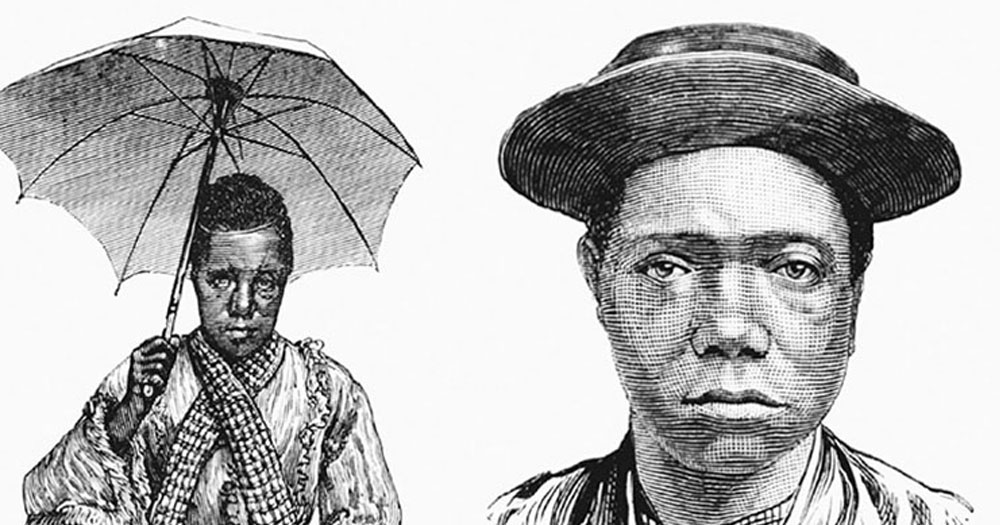Content Warning: Mentions of rape, slavery, abuse and violence.
We want to introduce you to Frances Thompson, a Black transgender legend from the 19th century. In a time when trans history is being erased and trans rights are being taken away, it is more important than ever to remember the trailblazers who came before us and keep their legacies alive.
Frances Thompson was born into slavery in Alabama in approximately 1840. Her family was enslaved by Robert Walker, and later travelled with Walker’s family to Memphis, Tennessee. The Walker family let her dress as a girl and shave her face, and she was recognised as a girl by everybody. As a child, she developed cancer in her foot, which caused her to have a disability, relying on crutches for the rest of her life.
According to Thompson, everyone in the Walker family but her mistress was killed in the Confederate Army; there were no living members, so she became a free woman.
At age 26, she rented an apartment on Gayoso Street, Memphis, which was a majority Black neighbourhood. She made a living cleaning clothes, ironing, and sewing, living freely as a woman. She had a roommate, Lucy Smith, who was 16.
The so-called ‘Memphis Massacre’ occurred from May 1, 1866, when a group of Black people were having a street party, and three white police officers attempted to arrest individuals for simply existing. As they were fighting, one police officer shot into the air, which caused panic, and people started running.
Over the next three days, more police officers and white people came to the neighbourhood and began terrorising innocent people. White people began invading Black people’s homes, churches and schools, robbing, raping and beating them, and even forcing some people to stay in their homes as they burned them to the ground. This terrorising caused the deaths of 46 Black peopl and injured up to 285. Five women were also raped, among them Frances Thompson and Lucy Smith.
Seven white men broke into their home, forcing Frances to make them supper, and she made them biscuits and coffee. They then demanded to have sex with a Black woman, she said, “We are not that sort of women.”
The men drew their pistols and raped both her and Lucy, then robbed her of $300. Frances Thompson fell sick and could not work for days, and Smith could not speak for a few days from the damage those men had caused. A group of 170 people testified to the US Congress about the atrocities that they had faced.
Frances Thompson’s statement was one of the most powerful. She went through her and Lucy’s entire account of what happened to them, telling Congress every brutal detail, which drew tears from some of the congressmen. The men who had committed these acts were not punished and were released instantly.
She was the first trans woman to speak before Congress, but seeking justice caused her more harm. Frances faced ridicule and abuse due to her identity, with multiple physicians’ examinations determining her sex, saying she was not a woman. This was an attempt by the Democrats to invalidate and discredit her, so her account would no longer count.
In 1876, at 36, she was arrested for cross-dressing and had to serve 100 days in prison, where she dealt with physical and sexual assault from prisoners. She was forced into manual labour and chained to other prisoners without her crutches. After serving her time, she fell ill and was brought to a hospital by her community members. Unfortunately, she passed away from dysentery.
Her story, along with everyone else’s in the Memphis Massacre and the New Orleans Massacre of the same year, pushed the US president to support Radical Reconstruction, protections for the Black people of America.
Frances Thompson stood her ground until she died, maintaining that she was a woman and that her biological sex was ”None of your damn buisness.” Her life mirrors the lives of so many Black trans women who face constant discrimination and hate. Stories like hers are to be remembered as she blazed a path for so many other LGBTQ+ people, as well as for feminist and civil rights movements.
Did you know we have a team of wonderful runners taking part in this year’s Dublin Marathon and raising funds for GCN? You can support our athletes at this link.
© 2025 GCN (Gay Community News). All rights reserved.
Support GCN
GCN is a free, vital resource for Ireland’s LGBTQ+ community since 1988.
GCN is a trading name of National LGBT Federation CLG, a registered charity - Charity Number: 20034580.
GCN relies on the generous support of the community and allies to sustain the crucial work that we do. Producing GCN is costly, and, in an industry which has been hugely impacted by rising costs, we need your support to help sustain and grow this vital resource.
Supporting GCN for as little as €1.99 per month will help us continue our work as Ireland’s free, independent LGBTQ+ media.
